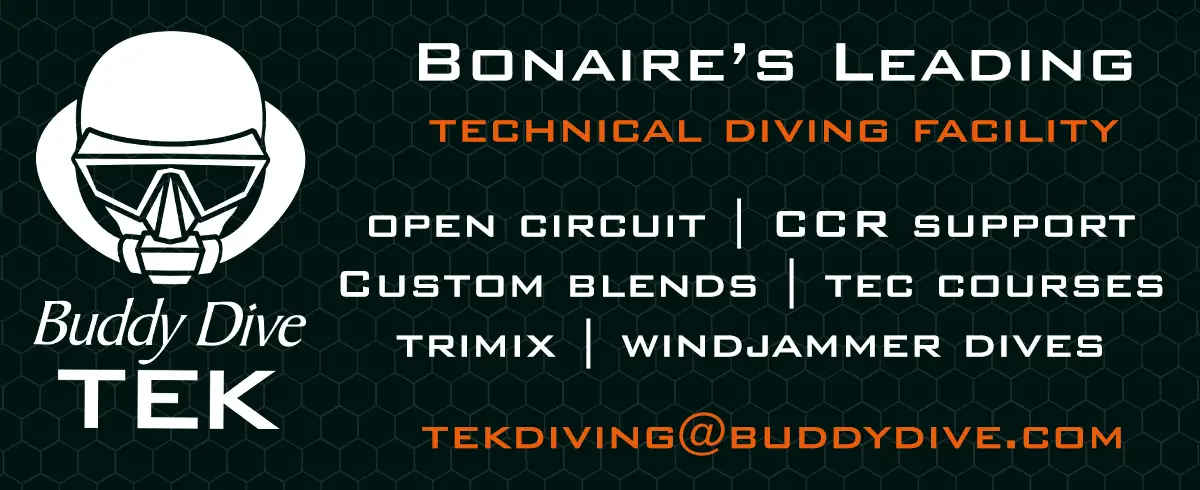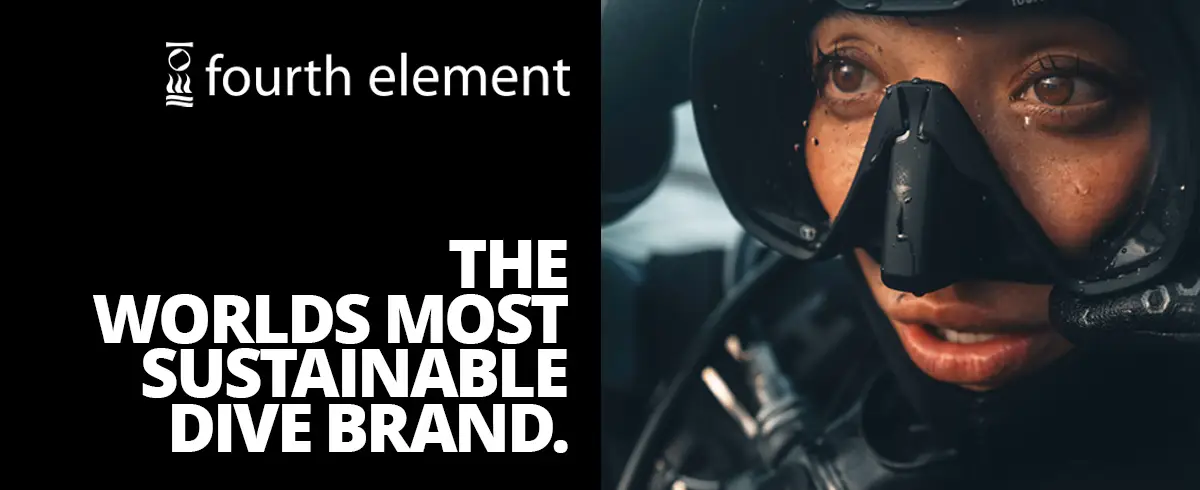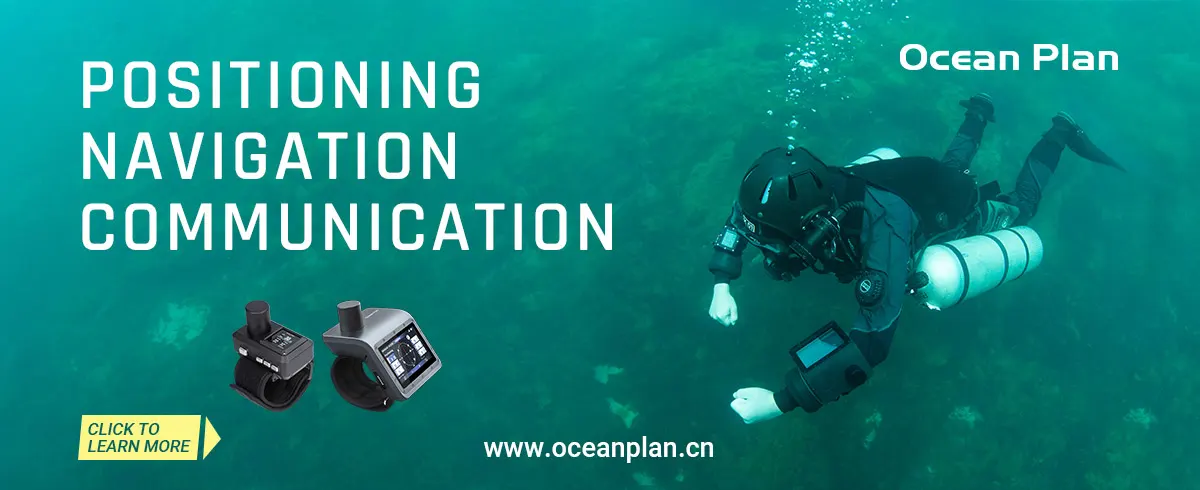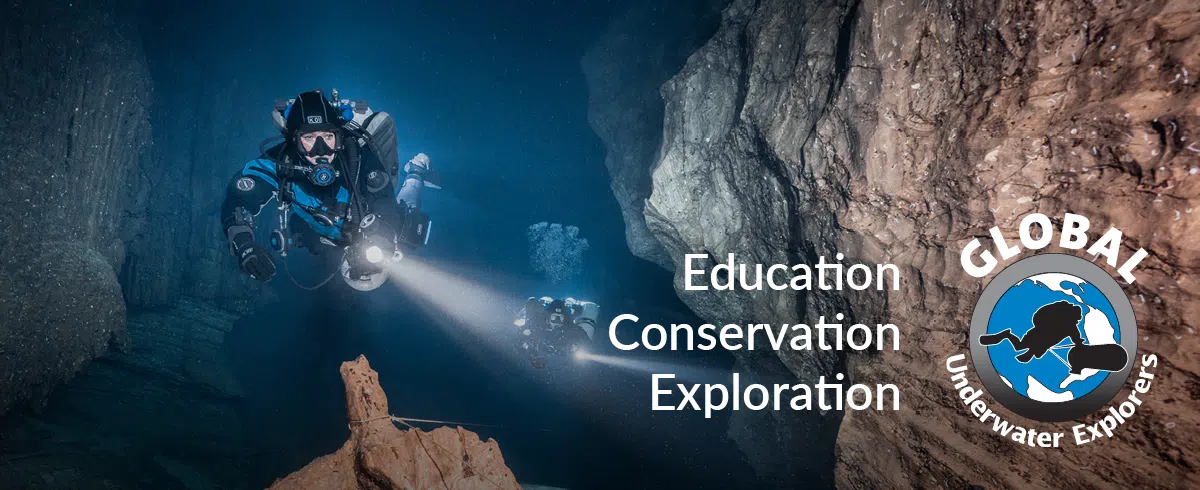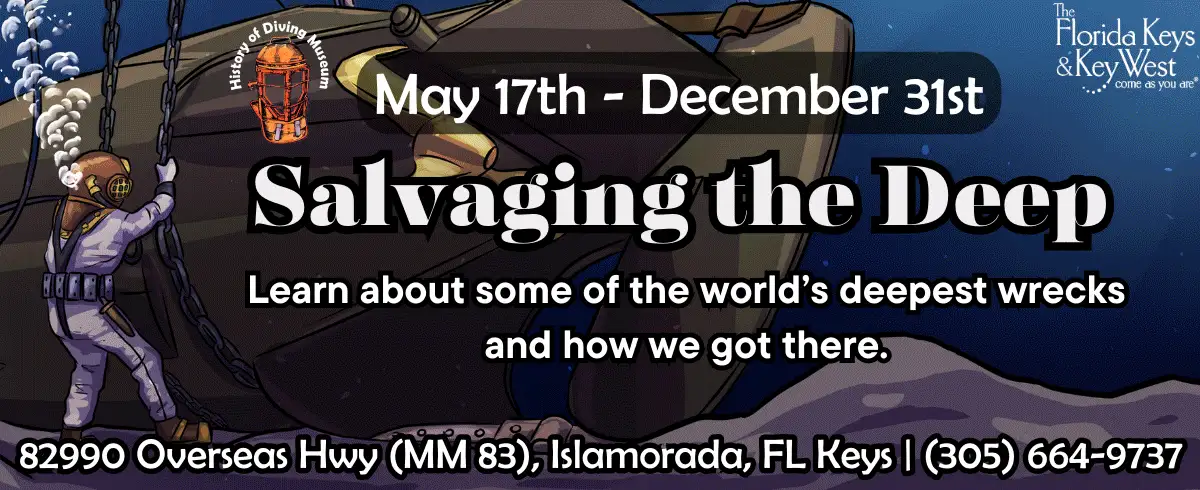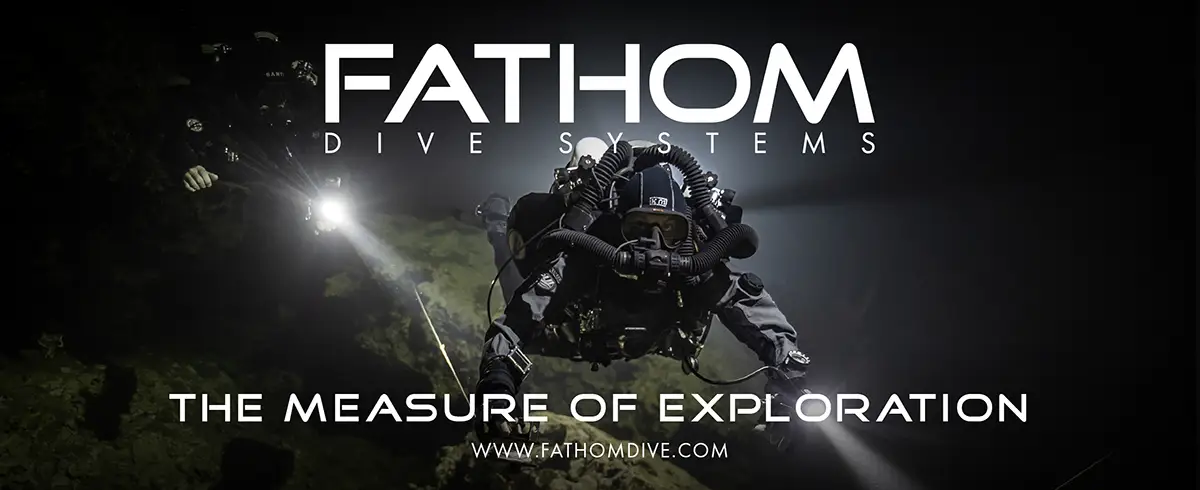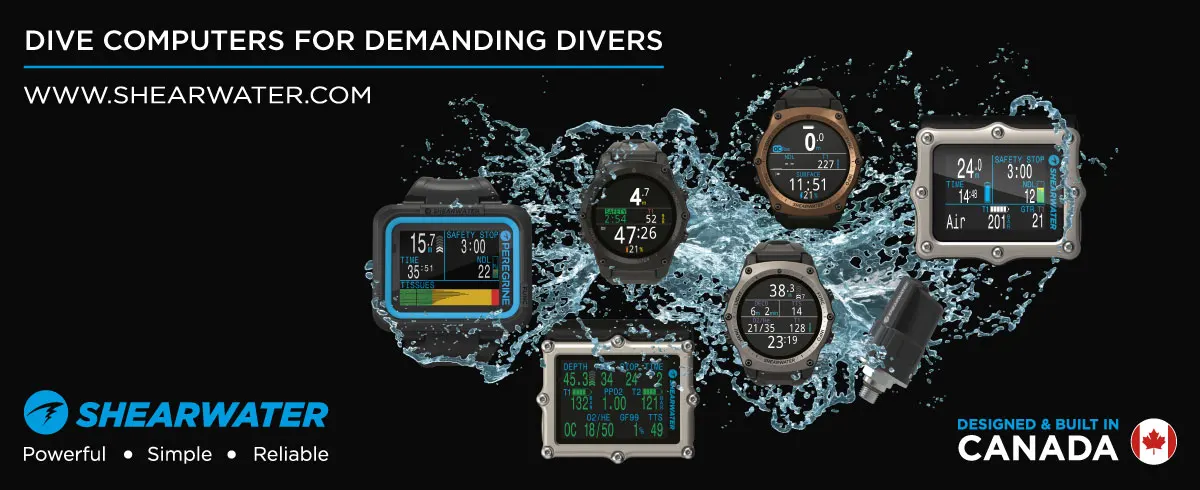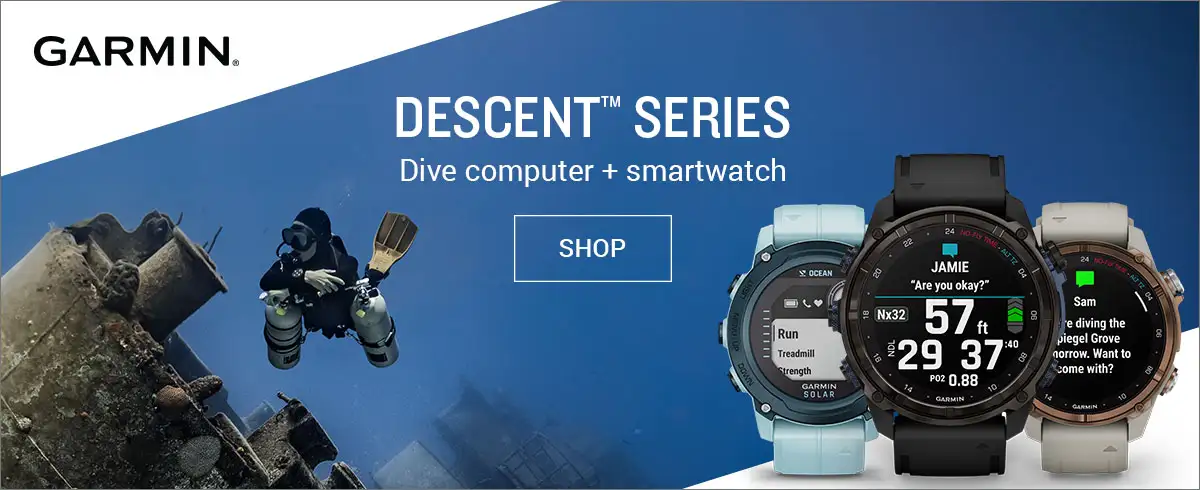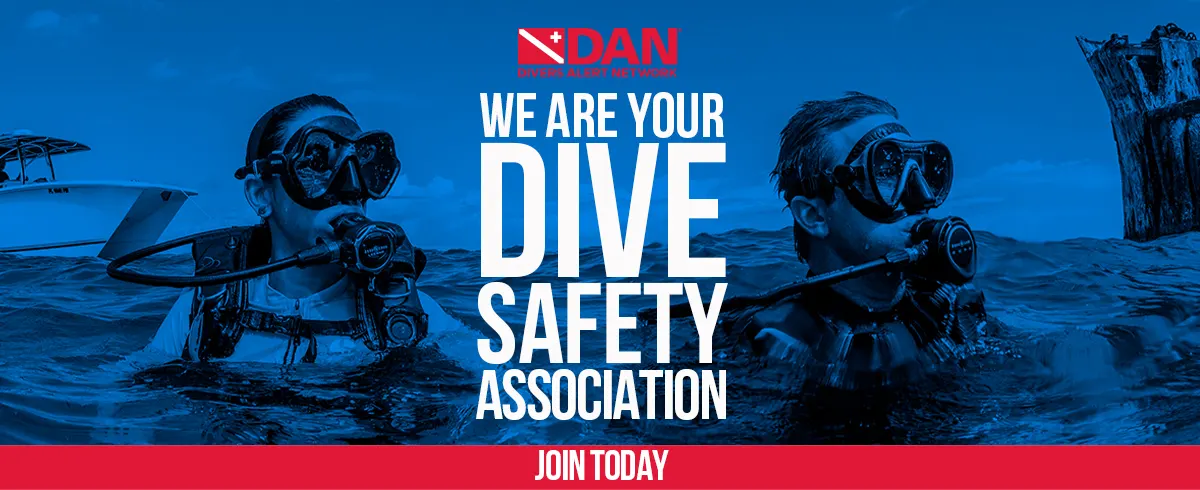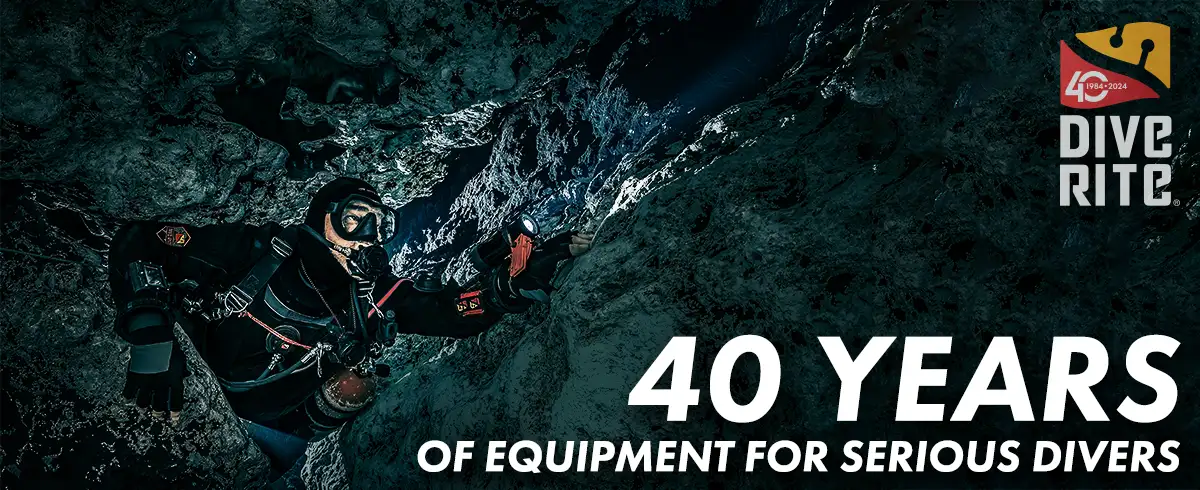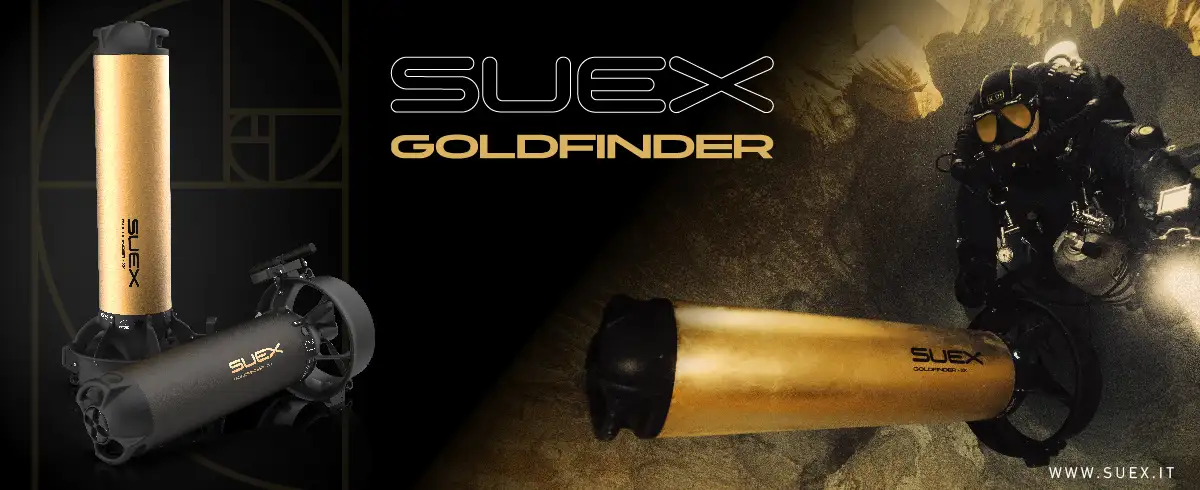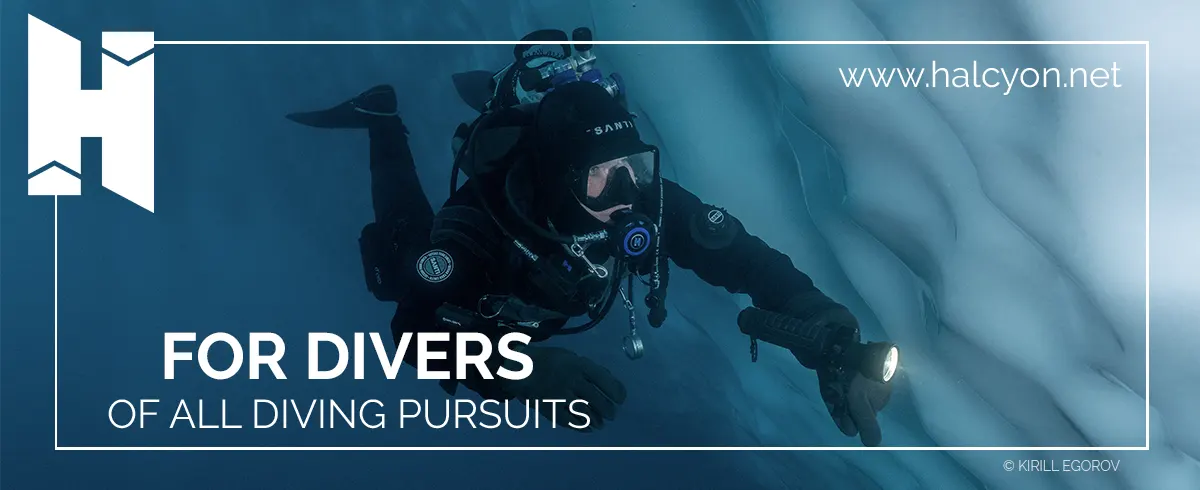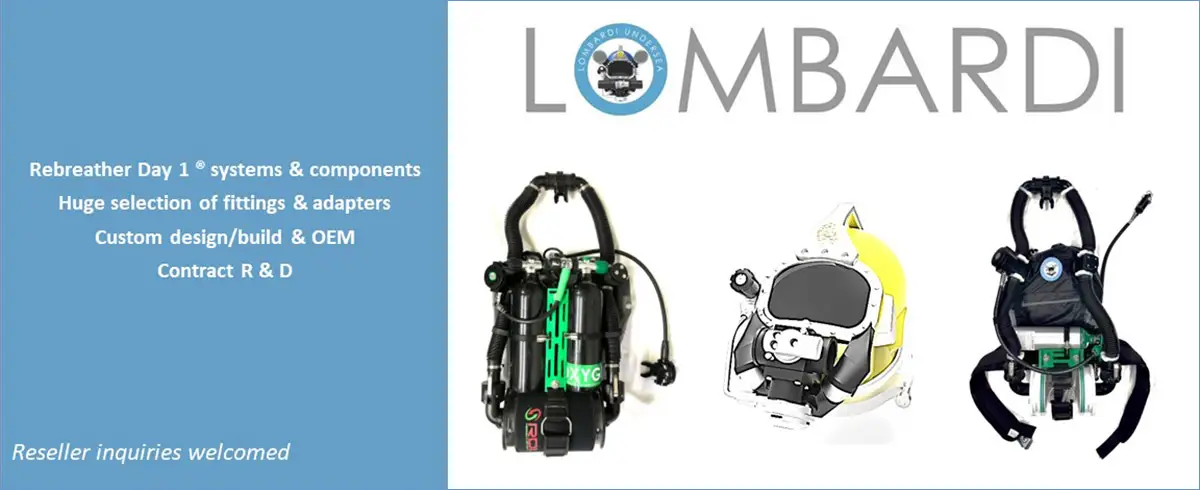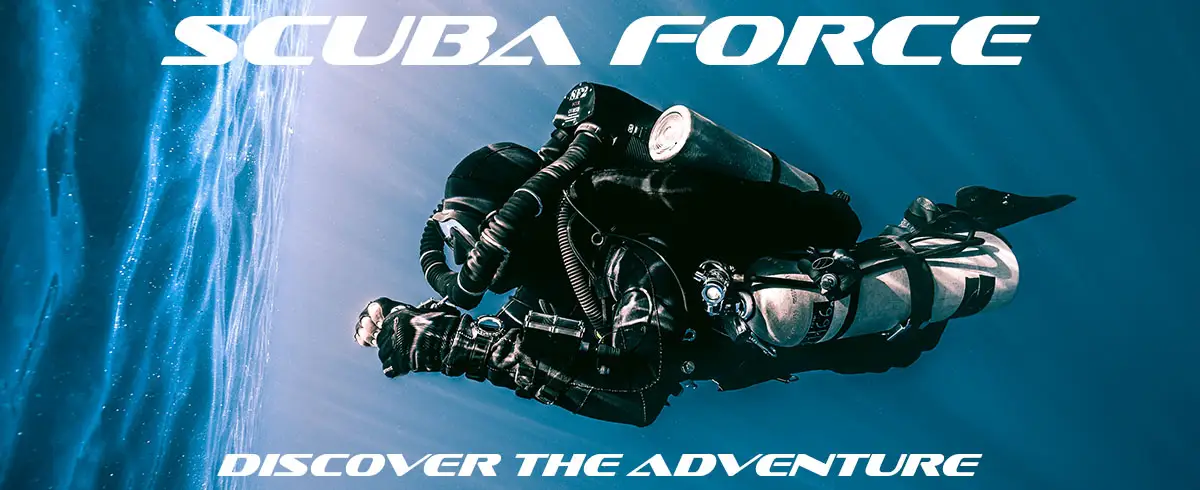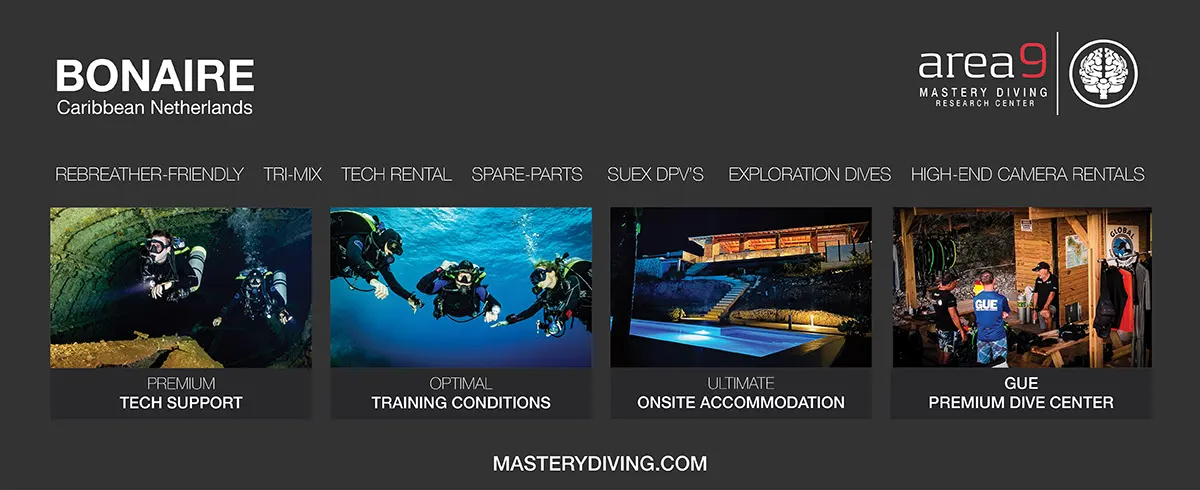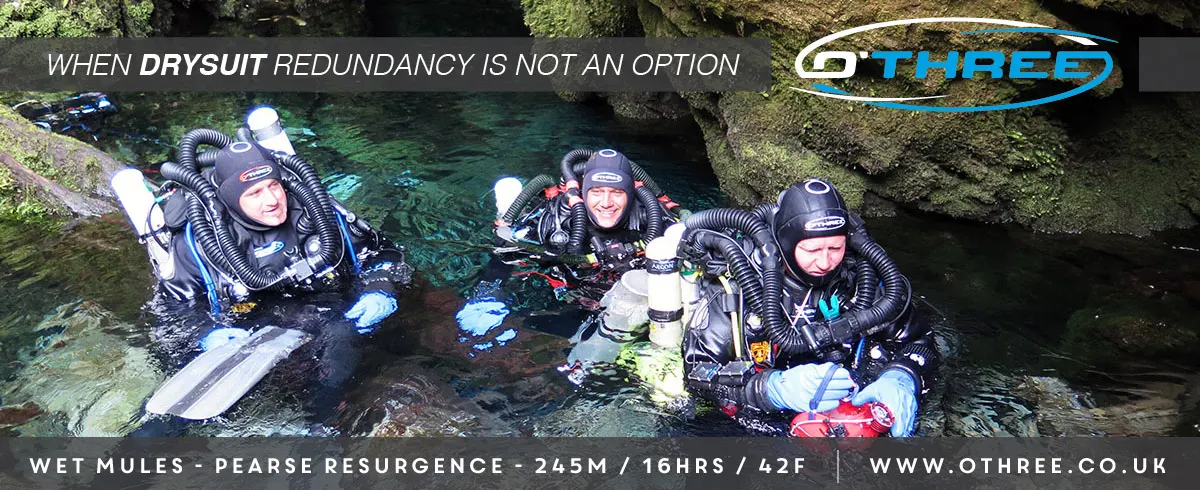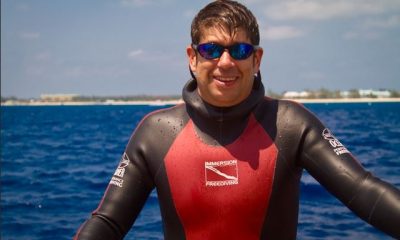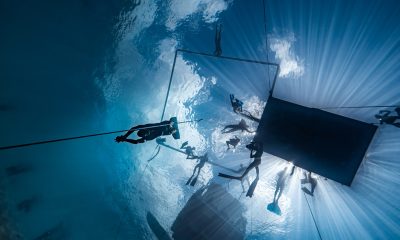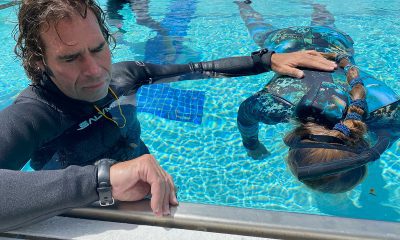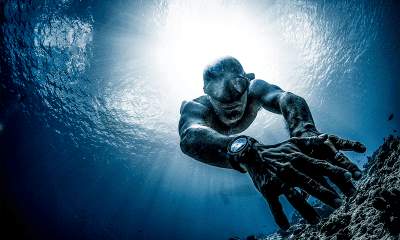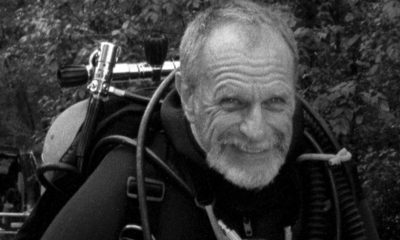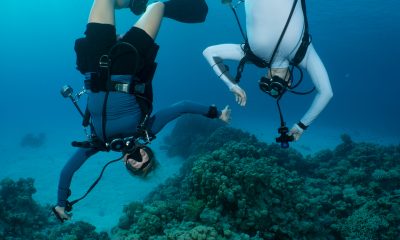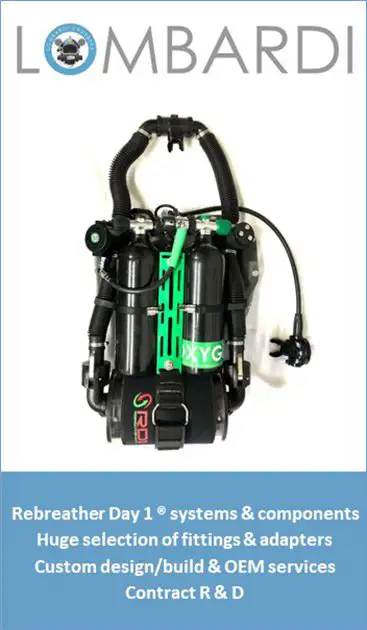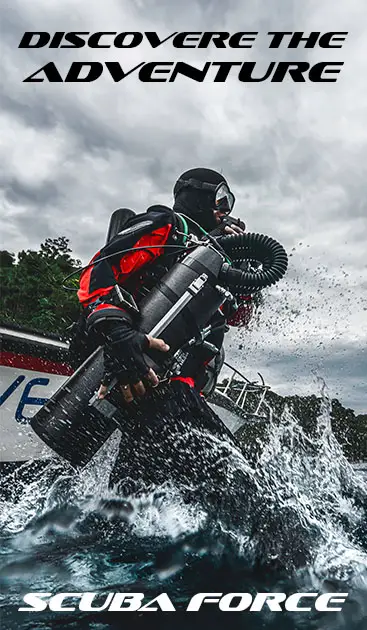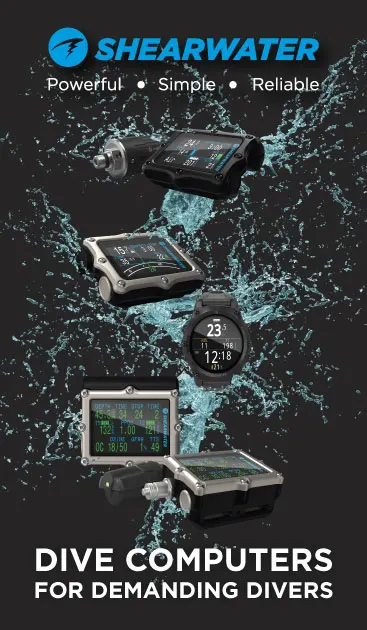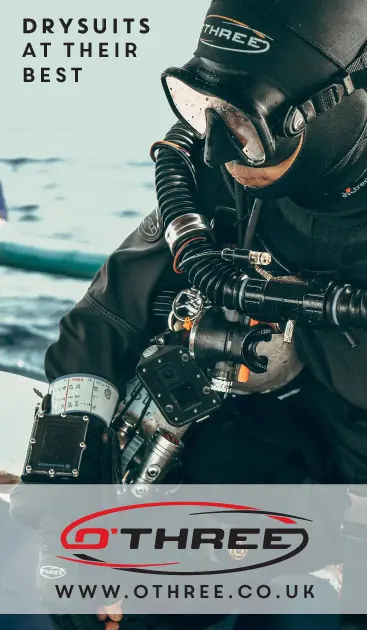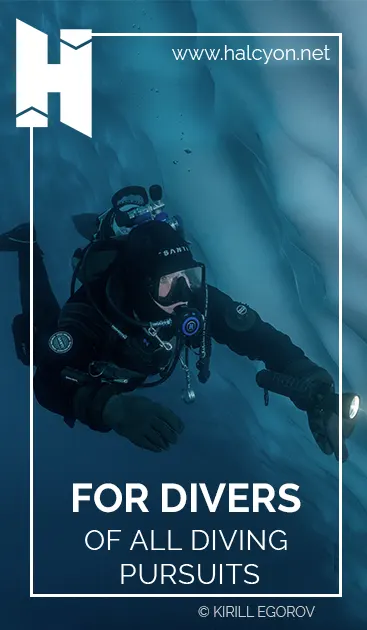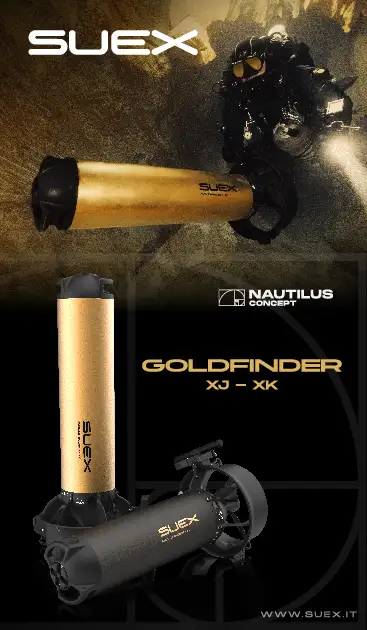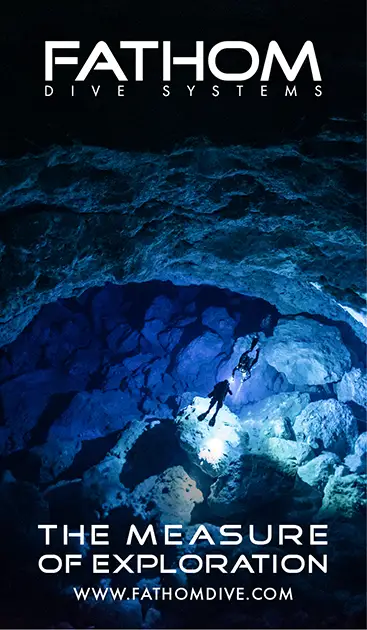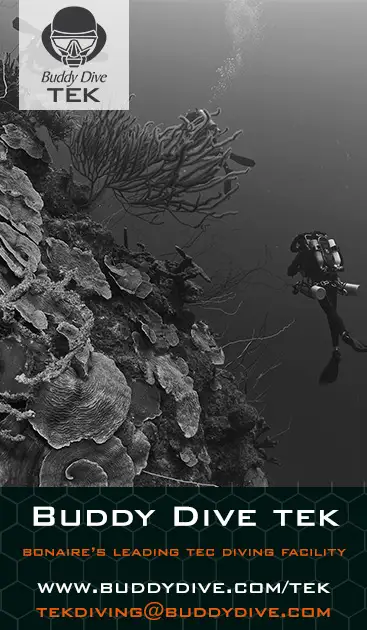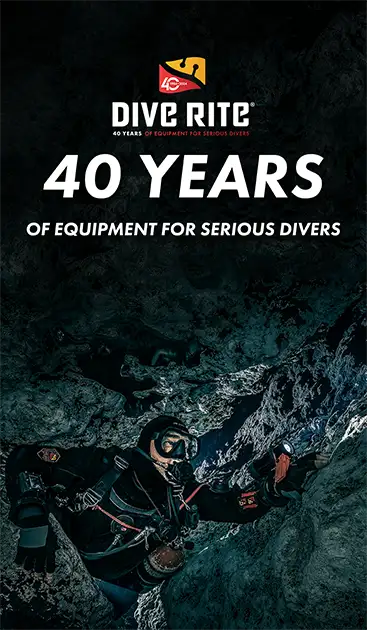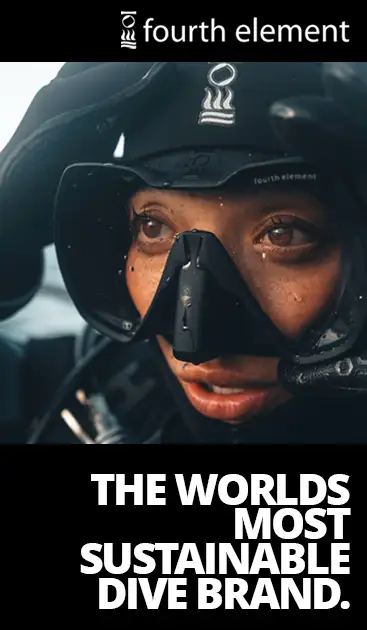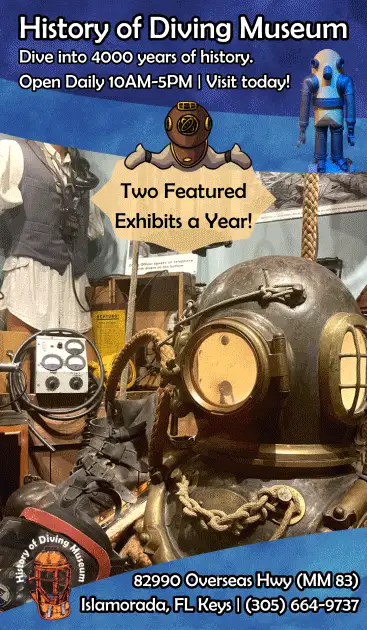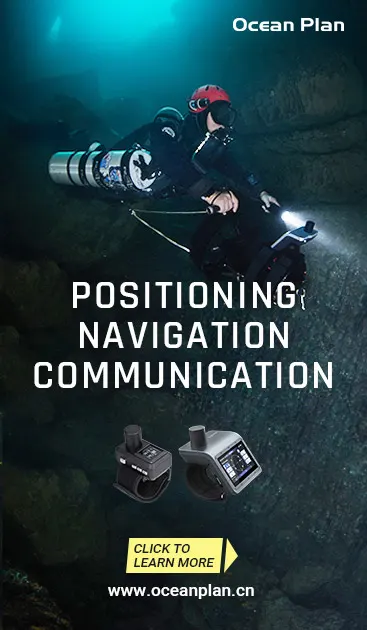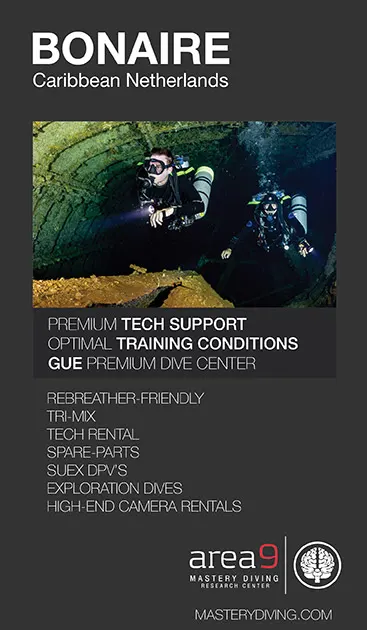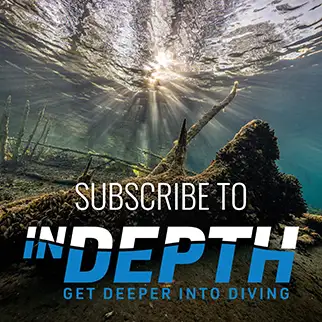Community
Handling the Pressures of Competitive Freediving
Sporting vegan diets, yoga, meditation, breath work and plenty of Mucinex, freedivers are often considered to be the woke, hippy contingent of the diving community—backpacks anyone? But as scuba instructor turned freediver Charly Stringer explains there’s method in the madness, err, protocol. I kid our breath-hold brethren. 😉 How do elite divers handle the competitive and hydrostatic pressures? Why, they pump up the prāṇa, of course.
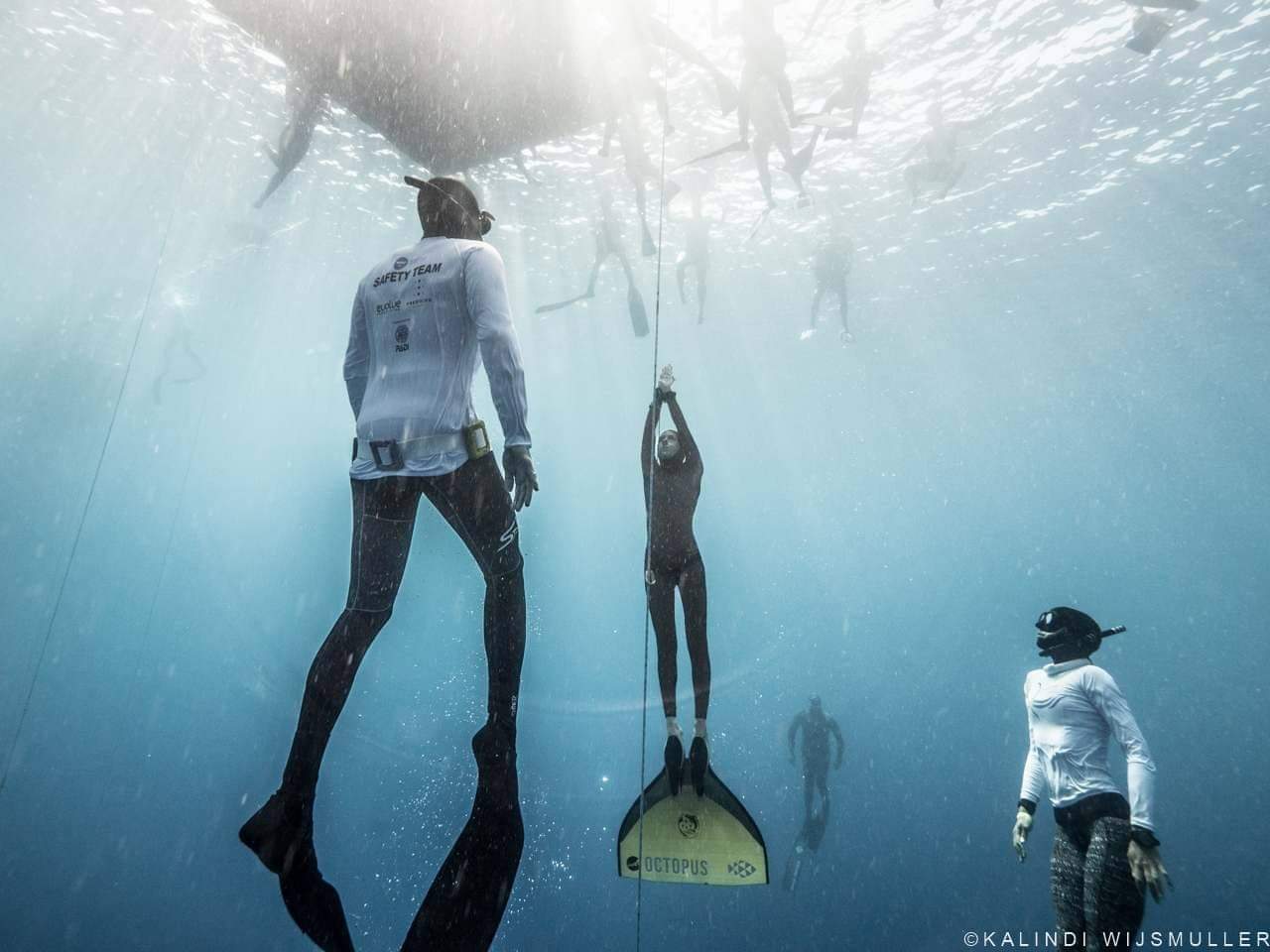
By Charly Stringer. Header image: Diver Lily Crespy coming to the end of a Constant Weight (CWT ) competition dive. Photo by Kalinda Wijsmuller
Diving to your deepest capabilities can be nerve wracking on even your best day. Throw in some judges, spectators, plus the pressure of diving for your country, and this can take the nerves to a whole new level.
So how do you handle these nerves and stay relaxed enough to perform well in a freediving competition?
Let’s dive into Ted Harty’s Freediving Summit, and see what some of the deepest divers in the world have to say about relaxation techniques and stress management skills.
Competition diving
For those of you who don’t know, there are pool freediving competitions, and depth freediving competitions. The current AIDA world records include an amazing 11 minutes and 35 seconds for static apnea (STA) which was achieved by Stéphane Mifsud. The records for depth in competition include 130 m/427 ft in the constant weight discipline (CWT) by Alexey Molchanov, and 102 m/335 ft in the no fins discipline (CNF) by William Trubridge. I think we can all agree that these are some extraordinary achievements—and that’s just the guys! Alenka Artnik is hot on the heels of Alexey, with her world record for the women being just 16 m/53 ft away from his in CWT.
William Trubridge, in an interview with Ted Hardy at this year’s Freediving Summit, spoke about his world record and his experiences with competition diving. When discussing the comparisons between freediving competitions and other sports, Trubridge expounded about how freediving is so unique, in that there are so many aspects to it that athletes of other sports don’t have to consider. For example, freedivers have to think about things like equalization, pressure adaptation, and narcosis. But he also said freedivers get “a beautiful sensation that they can’t experience with any other sport”.
So how do these world champions do it? How do they achieve such incredible depths without letting their nerves get the best of them?
Let’s look at some techniques to help you handle the pressure of competition freediving:
Yoga/Meditation
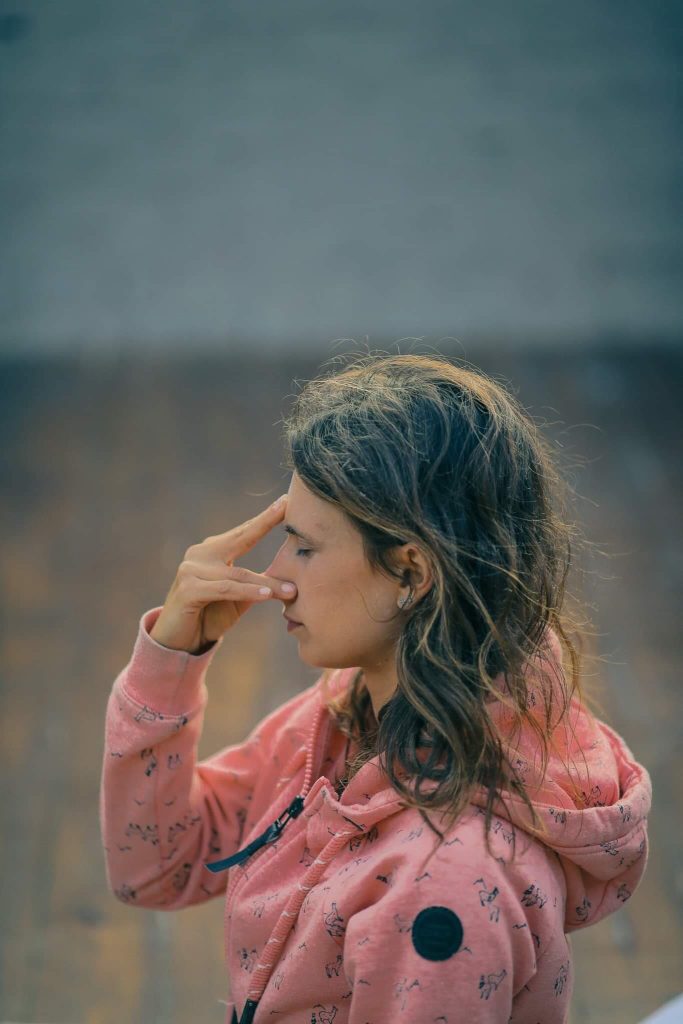
Yoga and meditation play a big part in the lives of most deep freedivers. Yoga helps them stay flexible and strong, which are both essential qualities for deep diving in an efficient way. Meditation can help to keep them calm both before and during a dive. It allows them to be in the present moment and accept all that they are feeling.
At the Freediving Summit, Sara Campbell (four time world record holder and yoga/meditation coach) spoke with Ted Hardy about her experiences with yoga, meditation, and freediving.
Sara was convinced to try freediving by a yoga student back in 2007. Reluctantly she tried, and realized very quickly that she had a talent for it. After just nine short months of training, Sara achieved three world records in three consecutive days, putting her on the map as one of the most impressive freedivers still to this day. Currently her deepest dive in competition was 96 m/315 ft in CWT.
During the summit, Sara and Ted talked about how yoga and meditation played a huge part in Sara’s fast progression. She said bringing these skills to freediving allowed her to have better awareness of her body and mind.
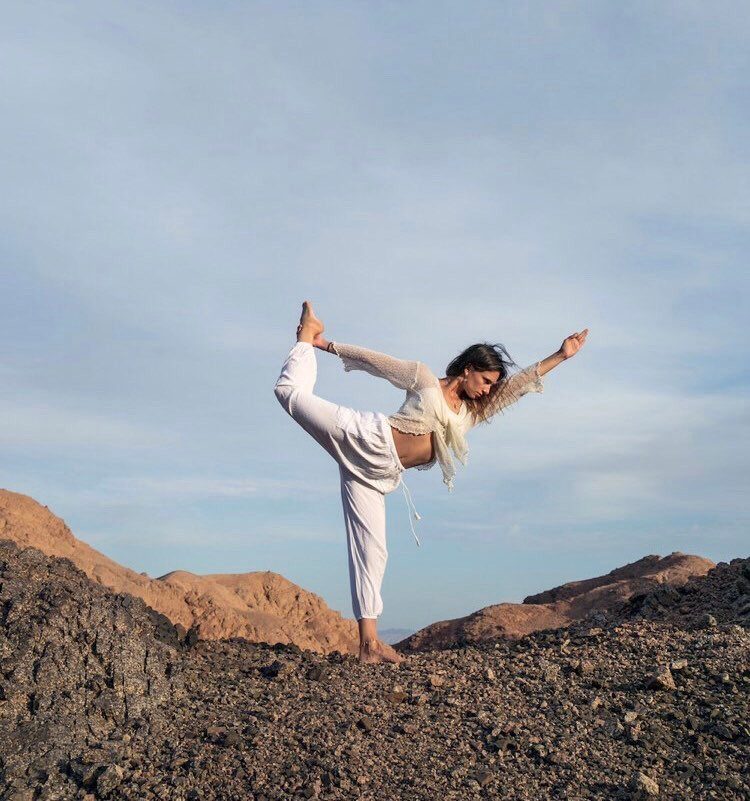
Sara discussed how spiritual teachers talk about “downloading information,” and how she felt that was true for her with yoga and freediving: “Somehow I was given a lot of wisdom about how our bodies behave in water. I had the ability to surrender to what was happening to my body in the ocean” she said. “Yoga and meditation gave me access to awareness. Through any blockage or fear, I had trust in myself.”
Yoga and meditation are a common pre-dive ritual for deep divers. Setting aside time before a stressful competition dive to be mindful and do some light stretching (nothing too strenuous in order to stay relaxed) can make a huge difference to how relaxing your dive will feel.
Breathwork
Breathwork is a part of meditation and can be massively helpful in relaxation for freediving.
Believe it or not, there is a wrong way to breathe. Your natural way of breathing is not optimum for relaxation, and therefore not optimum for freediving either. Breathwork and Pranayama can be used to increase relaxation for freediving. Including techniques such as:
Belly breathing: While breathing normally, you will probably be breathing more from the chest, or a mix of chest and belly. Breathing into the belly slows the breathing down and uses less energy, which can increase relaxation, and reduce heart rate and blood pressure. This is what makes it perfect for relaxation breathing for freediving.
2:1 breathing: 2:1 breathing is the technique of breathing out for half the amount of time that you breathed in for. It’s a breathing technique used to relax yourself. For example, breathing in for four seconds and breathing out for eight seconds. It shouldn’t feel like a struggle, but if it’s difficult try reducing the amount of seconds to three in and six out. Do whatever is most comfortable for you. There are other breathing ratios you can experiment with, but the 2:1 works best for relaxation breathing right before a dive. Remembering of course, not to hyperventilate.
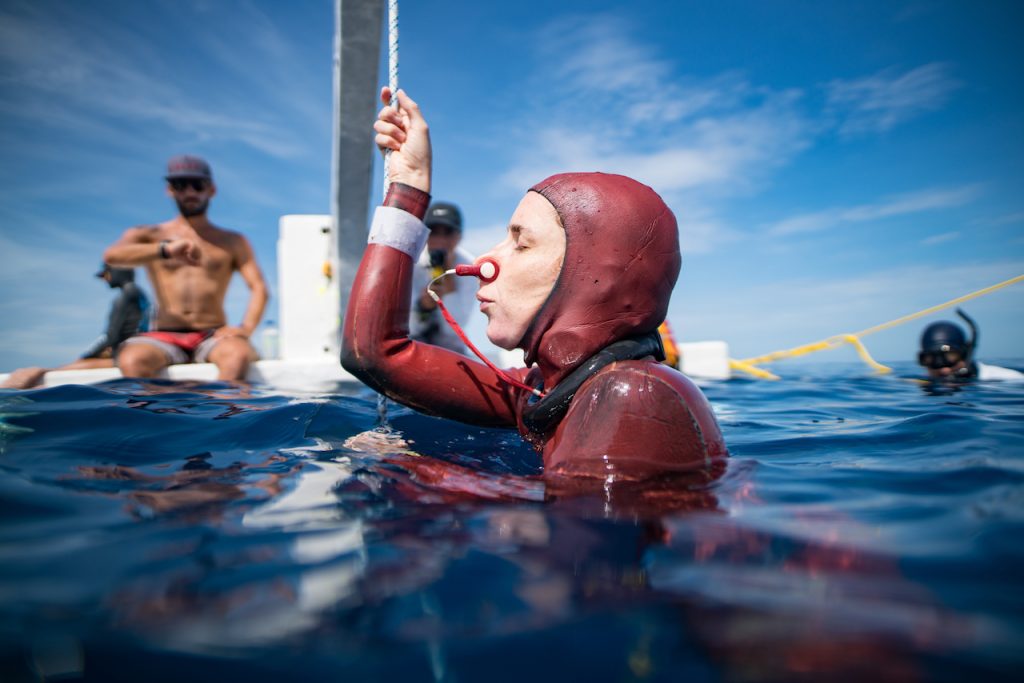
Ujjayi breath: Ujjayi breath is commonly used in yoga. You perform it by constricting the throat slightly, so that when you breathe you can hear the breaths, almost like a snoring sound. Some compare it to the Darth Vader noise from Star Wars. Ujjayi breathing is very calming and can be nice to do as part of relaxation breathing to stop your mind from wandering.
All of these breathwork techniques can be combined to create the best relaxation breathing for a competition dive.
Visualisation
Visualisation can be used in the moments before a dive, as well as the night before, and even in the weeks before. It can be used alongside your meditation practice, and is an excellent way to stay relaxed and confident with the dive you’re preparing for.
visualisation is when you go through every aspect of the dive before you do it. You play the relaxation breathing phase in your mind, followed by the duck dive, the first pulls or kicks, the first mouthfill, the freefall phase, the feeling of the pressure increasing, the turn, the way up, and the final minutes of the dive on the surface, including surface protocol for competition diving. You will think about how each of these phases of the dive will feel. It’s important to visualize the dive going well, but also to visualize any issues you might face and how you would overcome them.
If you visualize the dive, you know exactly what you have to do at every phase, and there will be no surprises. Knowing that you are completely prepared will help you to feel relaxed and confident.
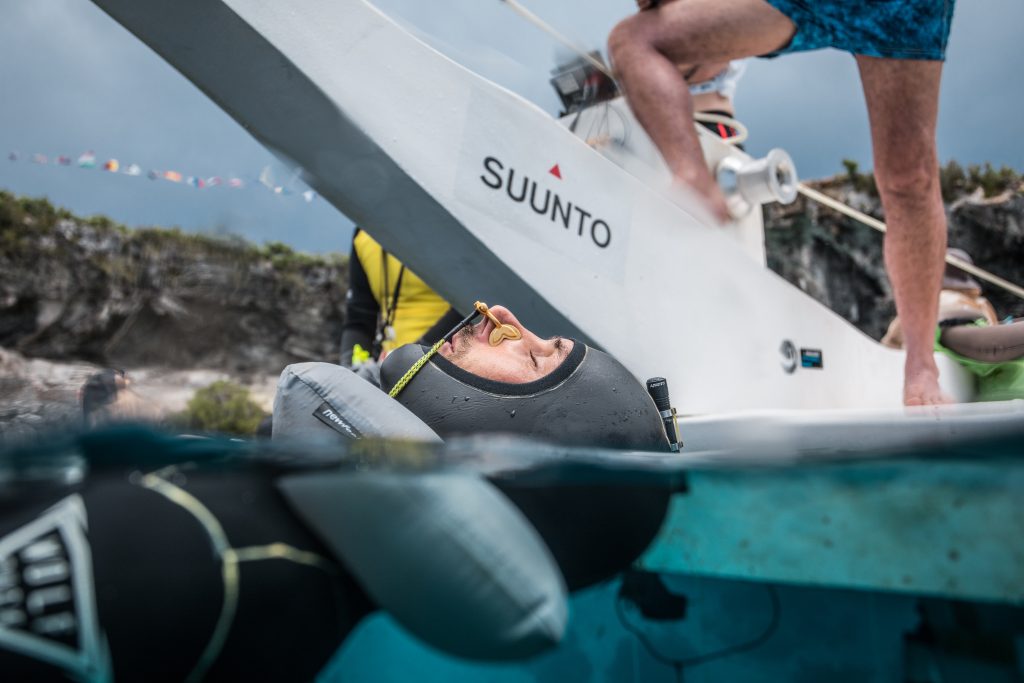
Body Scan
A body scan is a technique to check how relaxed you are. Sometimes you feel completely relaxed, but you’re actually holding tension somewhere in your body. Even somewhere small or subtle.
You perform a body scan by lying still and going over every part of your body in your mind to check there’s no tension there. Start from your head, your ears, your forehead, your eyes, your mouth, and so on until you reach your toes. Do the front and the back of the body. You might be surprised to find tension in a subtle place such as the eyebrows or fingers.
Body scanning can be combined in the breathe up with the relaxed breathing exercises, to check you’re totally relaxed and ready to go.
The Importance of Competitions
Staying relaxed and mindful before and during a competition dive is important. But it’s also important not to put too much pressure on yourself to do well in the competition. Everyone has bad days, even the best athletes in the world. Of course, strive for your best and hope to do well, but remember that if you do have a bad dive for any reason, it’s not the end of the world. Thinking this way will help to put less pressure on yourself, which means you’ll be more relaxed, and more likely to have a successful dive.
In the Freediving Summit, Alexey Molchanov talked with Ted Hardy about the importance he puts on competitions. Alexey is arguably currently the world’s best freediver, holding 24 world records so far. He owns his own freediving equipment company and education system with schools around the world.
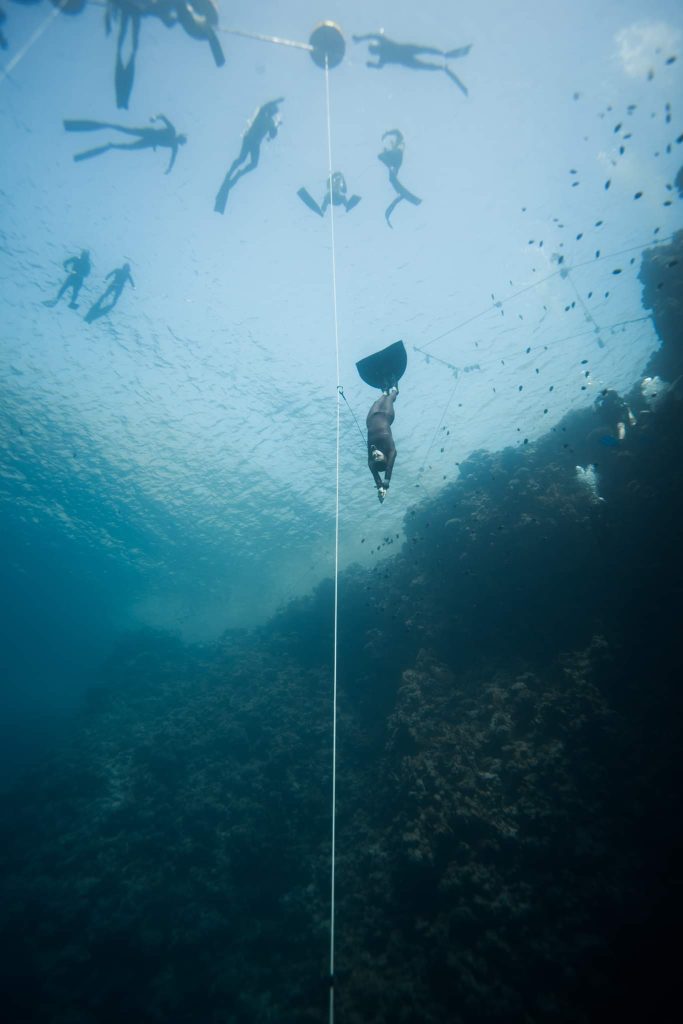
Alexey’s mother, Natalia Molchanova was a legend and pioneer in the freediving world, she achieved an incredible 41 world records, and was the first woman to dive to 100 m/328 ft. This meant that Alexey learned freediving from the best, and from a very young age he was always involved in the sport.
In the interview, Alexey claimed that something he learned from his mother was how to manage stress for competitions. He said he used to feel pressure to win, and that it was “painful for the ego” to lose. But then he realized that he was putting too much importance on winning. Referring to freediving competitions as “just games for adults” he said: “They’re not important. There are much more important things”. This realisation allowed Alexey to “avoid personal attachment to the competition” and to “create distance” between himself and the event.
Advice from Alexey: “Work hard but don’t place too much importance on winning. It’s not easy to do, and coaches need to work with your personal worries. But I just think, “If I lose, does it change anything?”
Dive Deeper
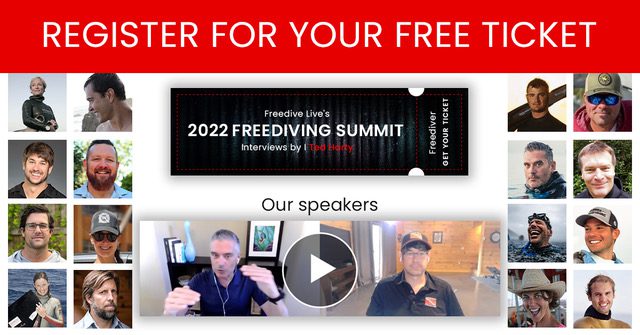
To explore additional stories, videos and webinars on freediving click: FREE
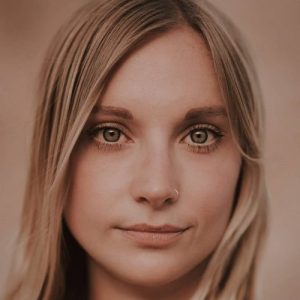
Charly is a writer who’s originally from the UK but has been based in Dahab, Egypt for the past four years. She taught scuba diving for three years in Cyprus, Thailand, and Egypt before discovering her love of freediving. She still scuba dives for fun, but these days she’s more focused on her freediving training. When she’s not in the water, diving, she’s on her laptop, writing about diving.

